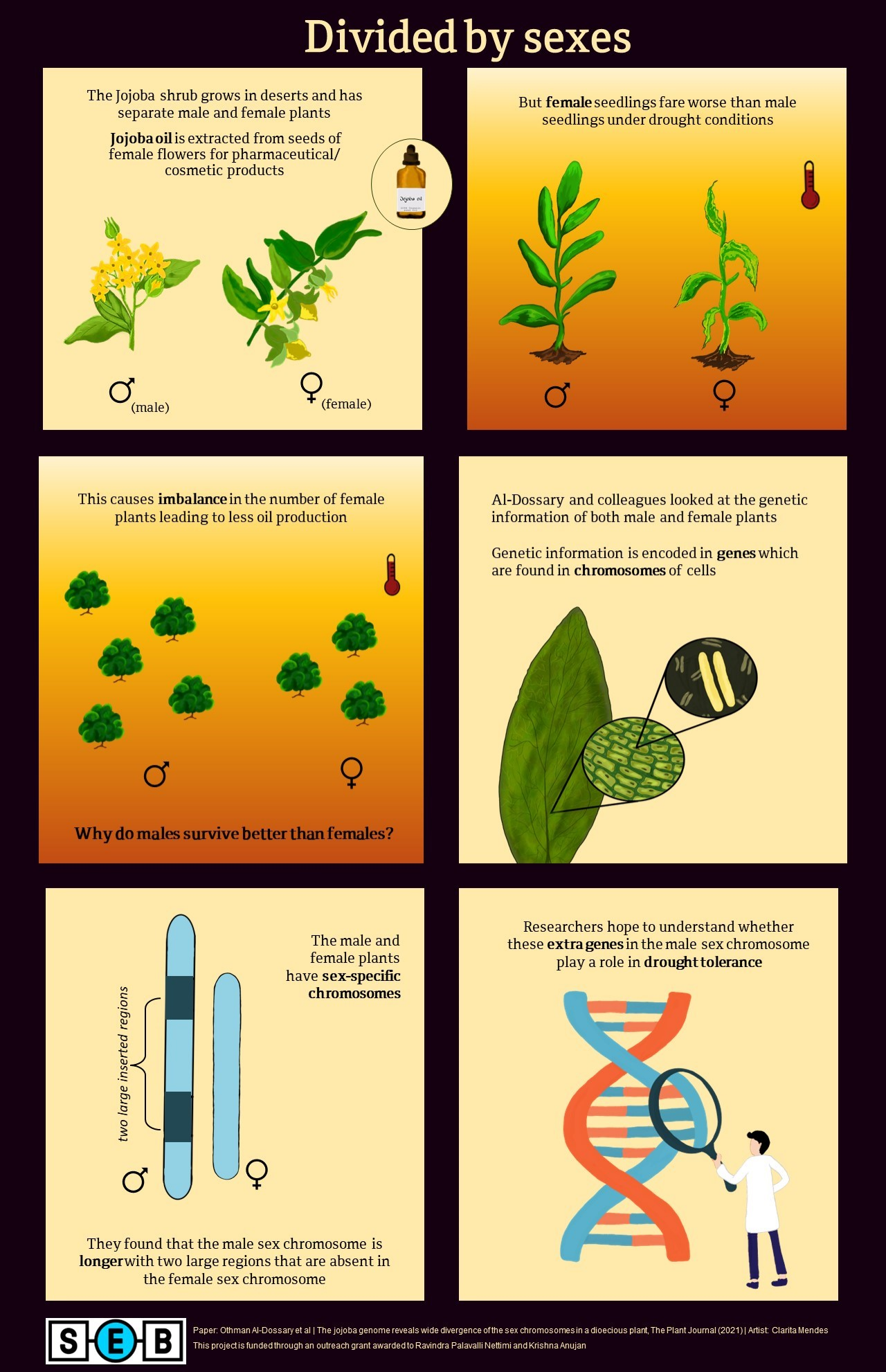
Extended Alt Text of the Poster "Divided by sexes"
A poster divided in six blocks entitled “Divided by sexes”.
- First block has a male and female jojoba plant and a jojoba oil flask. The written content is: The Jojoba shrub grows in deserts and has separate male and female plants. Jojoba oil is extracted from seeds of female flowers for pharmaceutical/cosmetic products.
- Second block has a healthy male plant, a wilting female plant and a thermometer marking a high temperature. The written content is: But female seedlings fare worse than male seedlings under drought conditions.
- Third block has five male plants, three female plants and a thermometer marking a high temperature. The written content is: This causes imbalance in the number of female plants leading to less oil production.
- Fourth block has s zoom in a leaf showing its cells and a zoom in the cells showing chromosomes. The written content is: Al-Dossary and colleagues looked at the genetic information of both male and female plants. Genetic information is encoded in genes which are found in chromosomes of cells.
- Fifth block has one male chromosome highlighting two large inserted regions, and a smaller female chromosome. The written content is: The male and female plants have sex-specific chromosomes. They found that the male sex chromosome is longer with two larger regions that are absent in the female sex chromosome.
- Sixth block has a person with a white coat, and a magnifier looking a gene. The written content is: Researchers hope to understand whether these extra genes in the male sex chromosome play a role in drought tolerance.
The footnote has the official SEB logo and the written content is: Paper: Othman Al-Dossary et al. The jojoba genome reveals wide divergence of the sex chromosomes in a dioecious plant, The Plant Journal (2021). Artist: Clarita Mendes. This project is funded through an outreach grant awarded to Ravindra Nettimi and Krishna Anujan.
